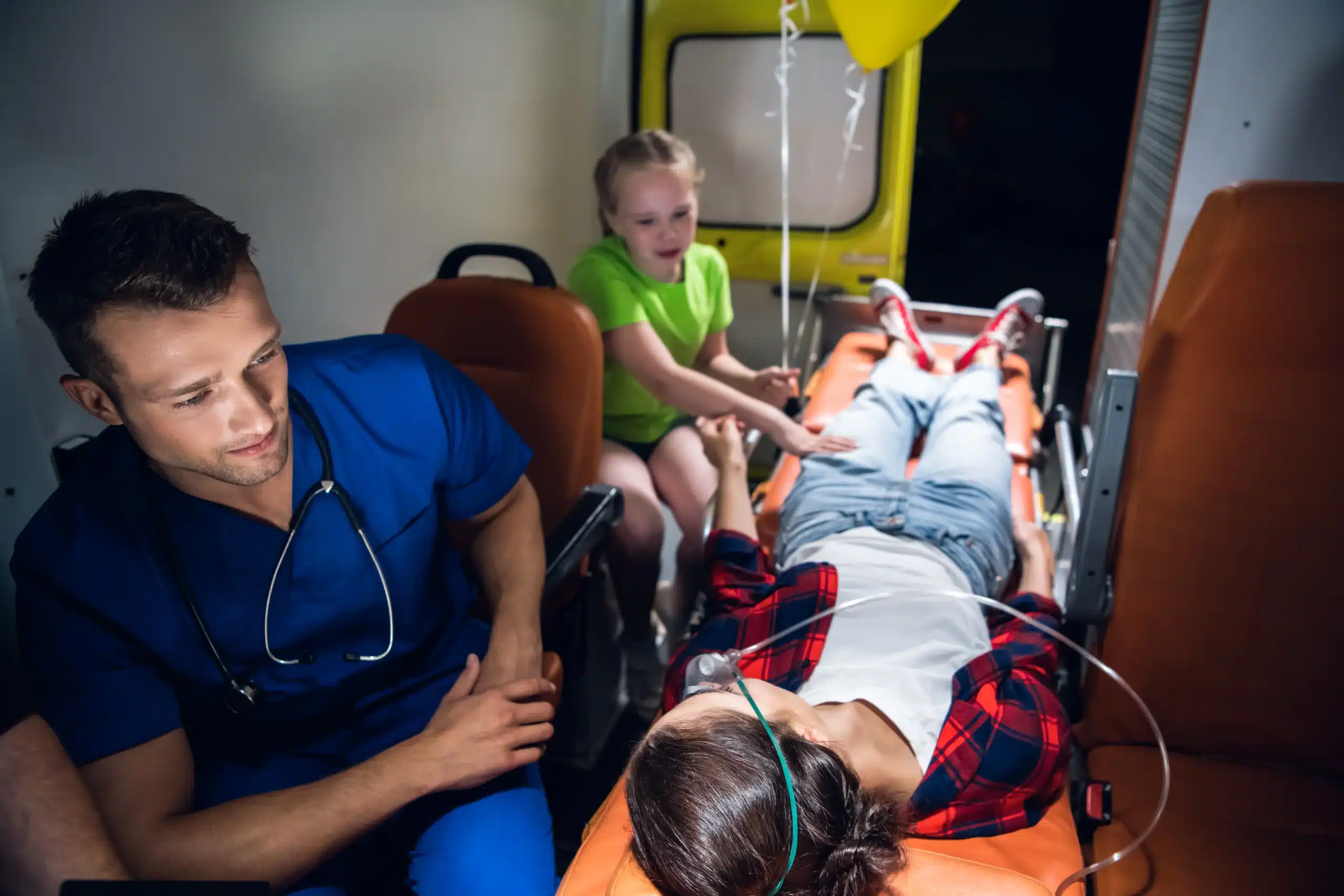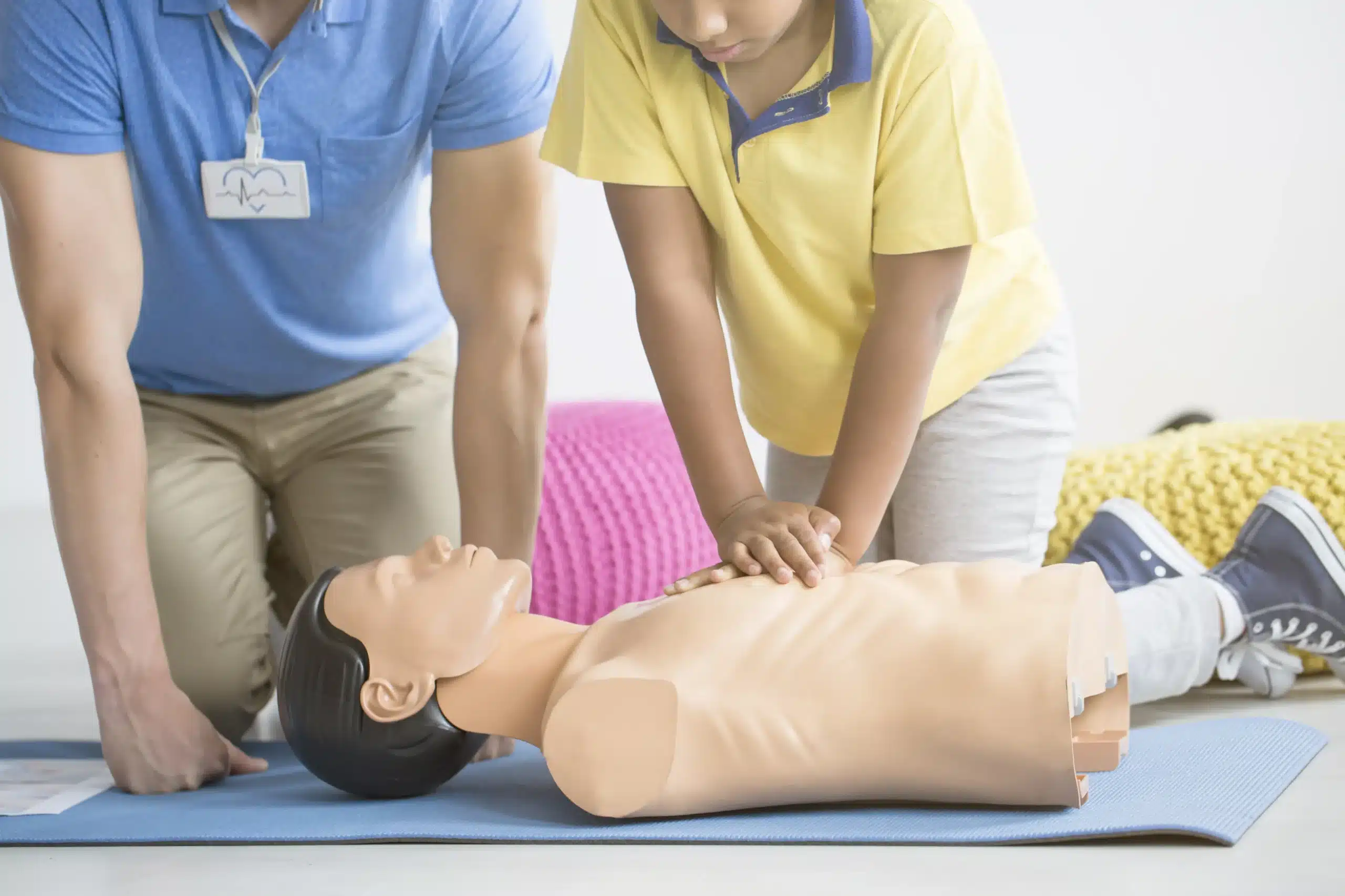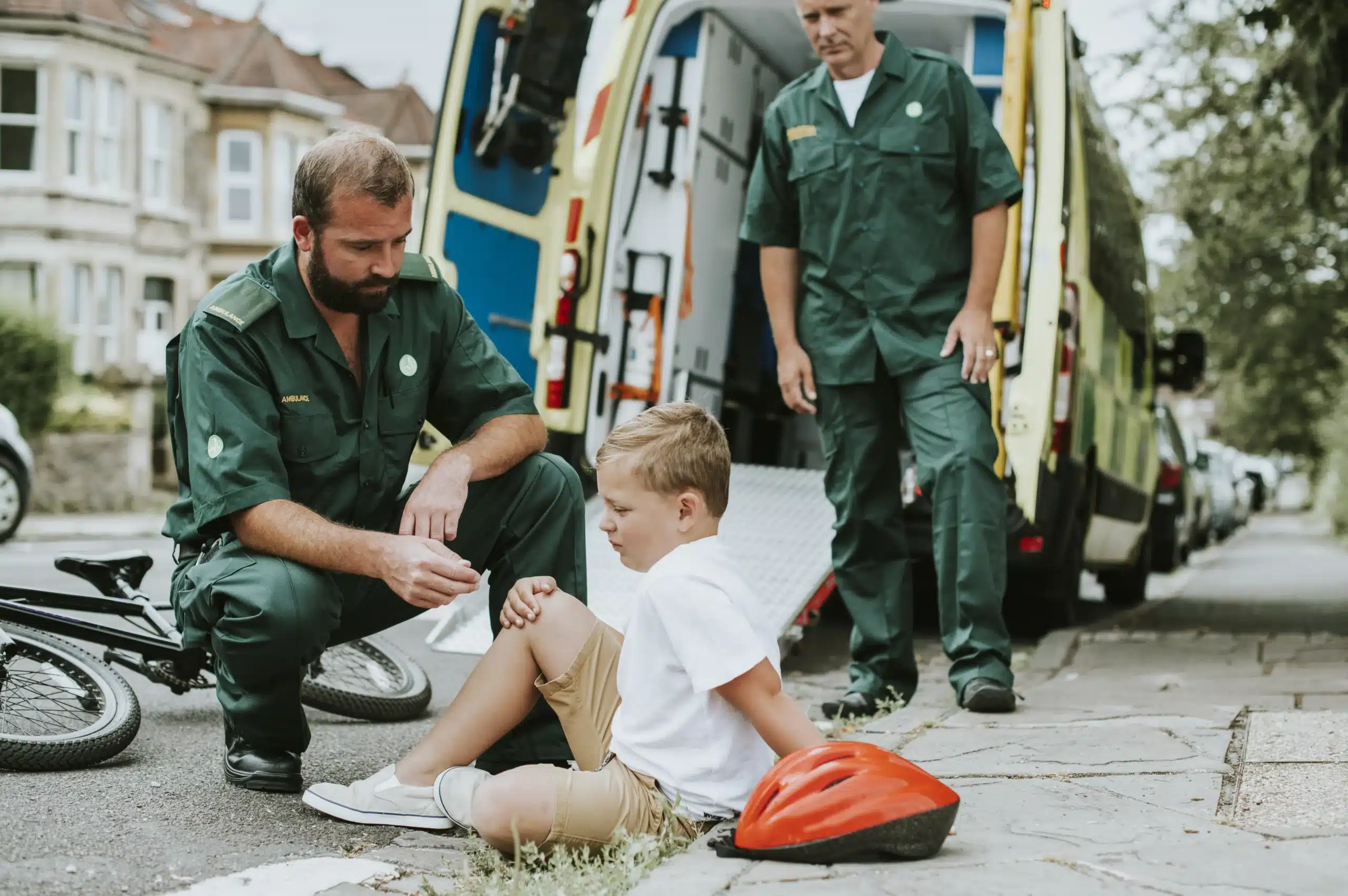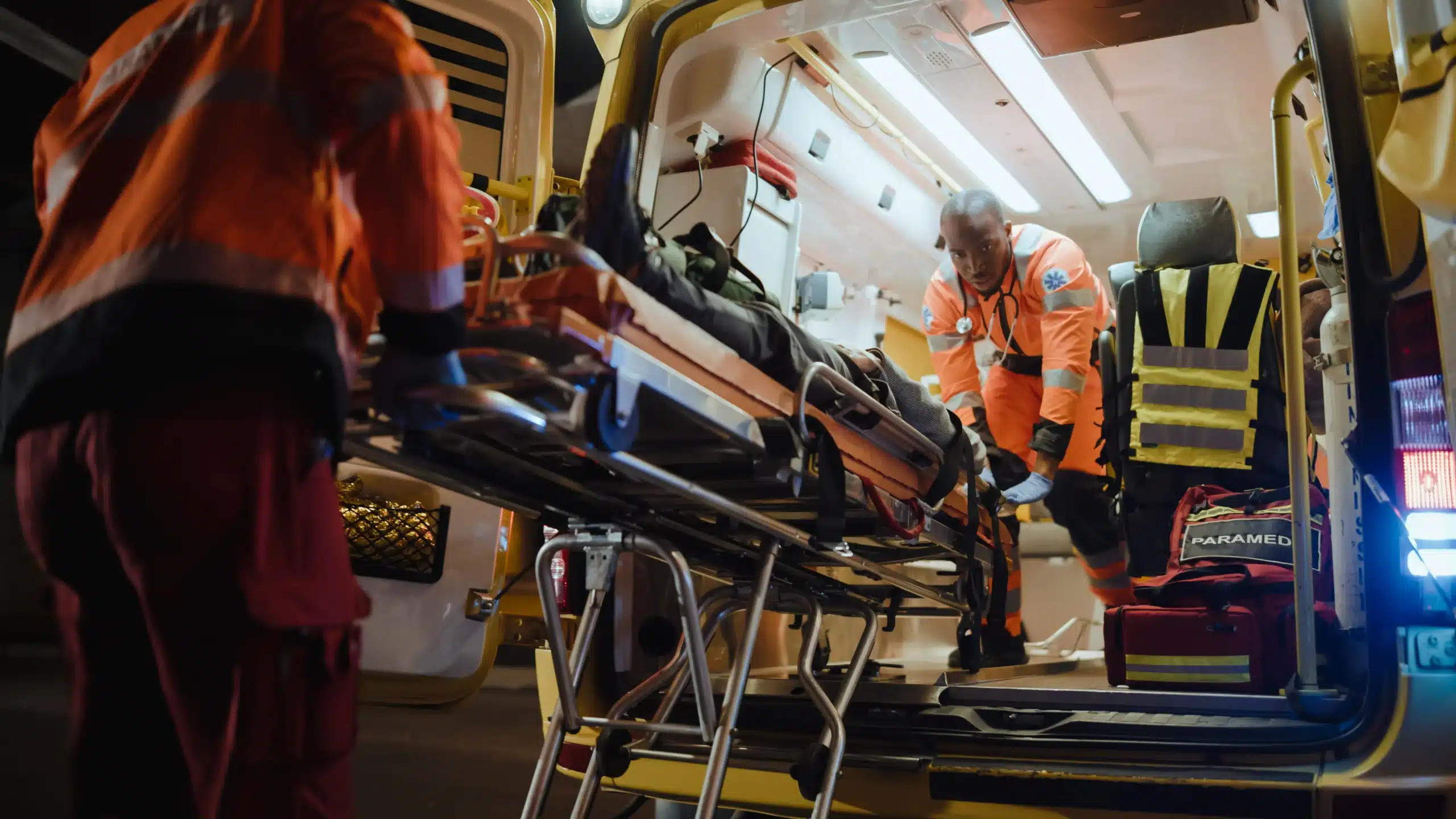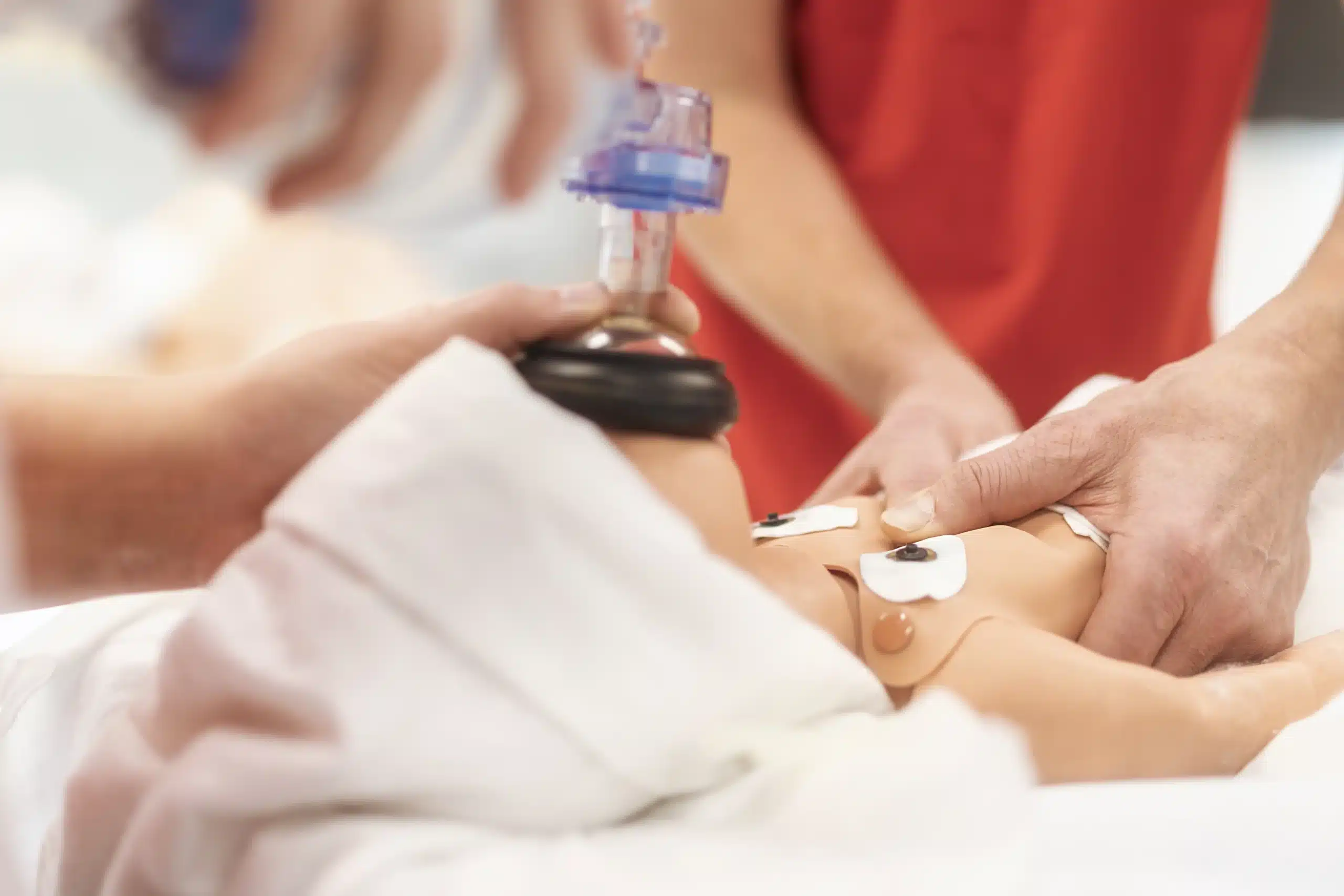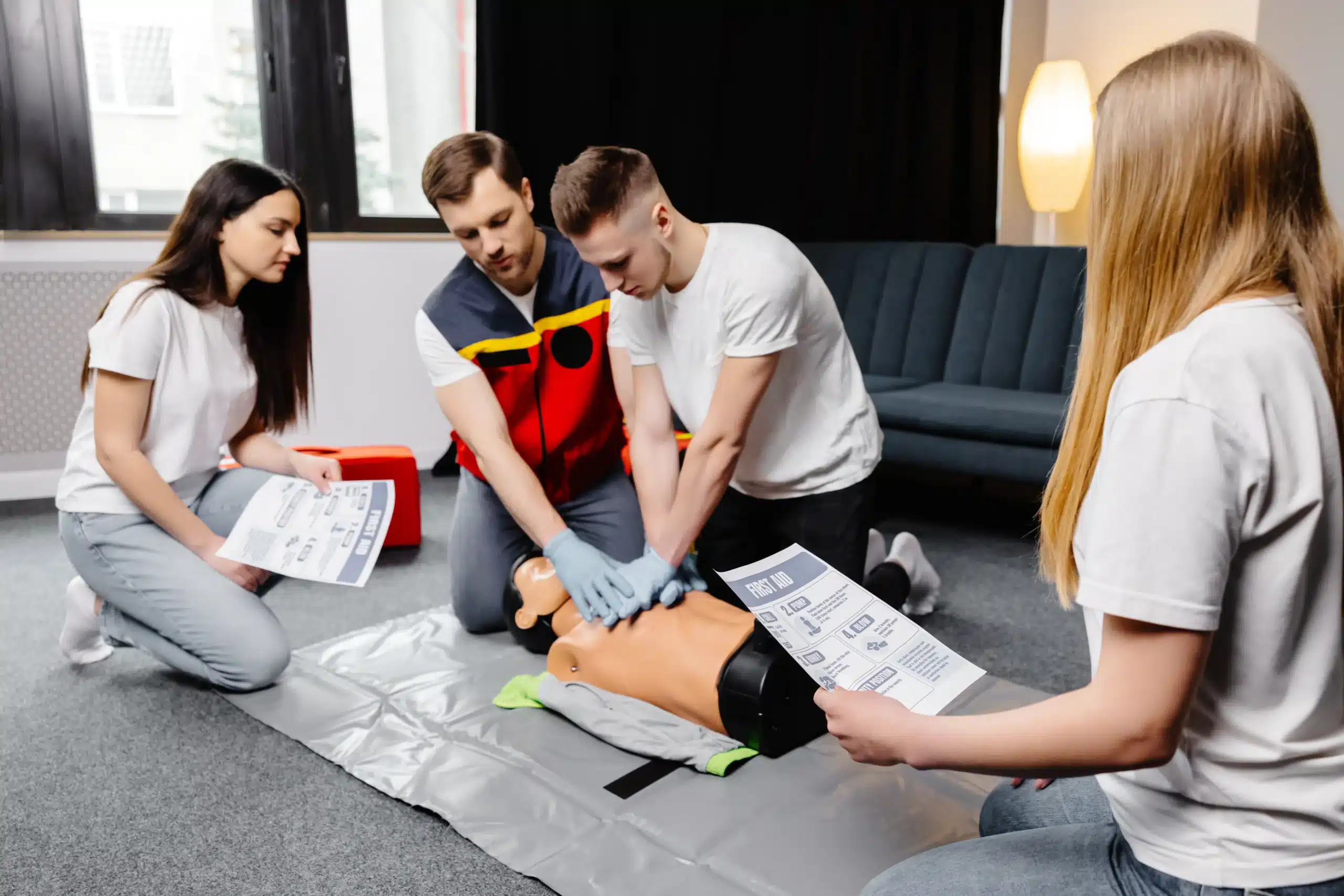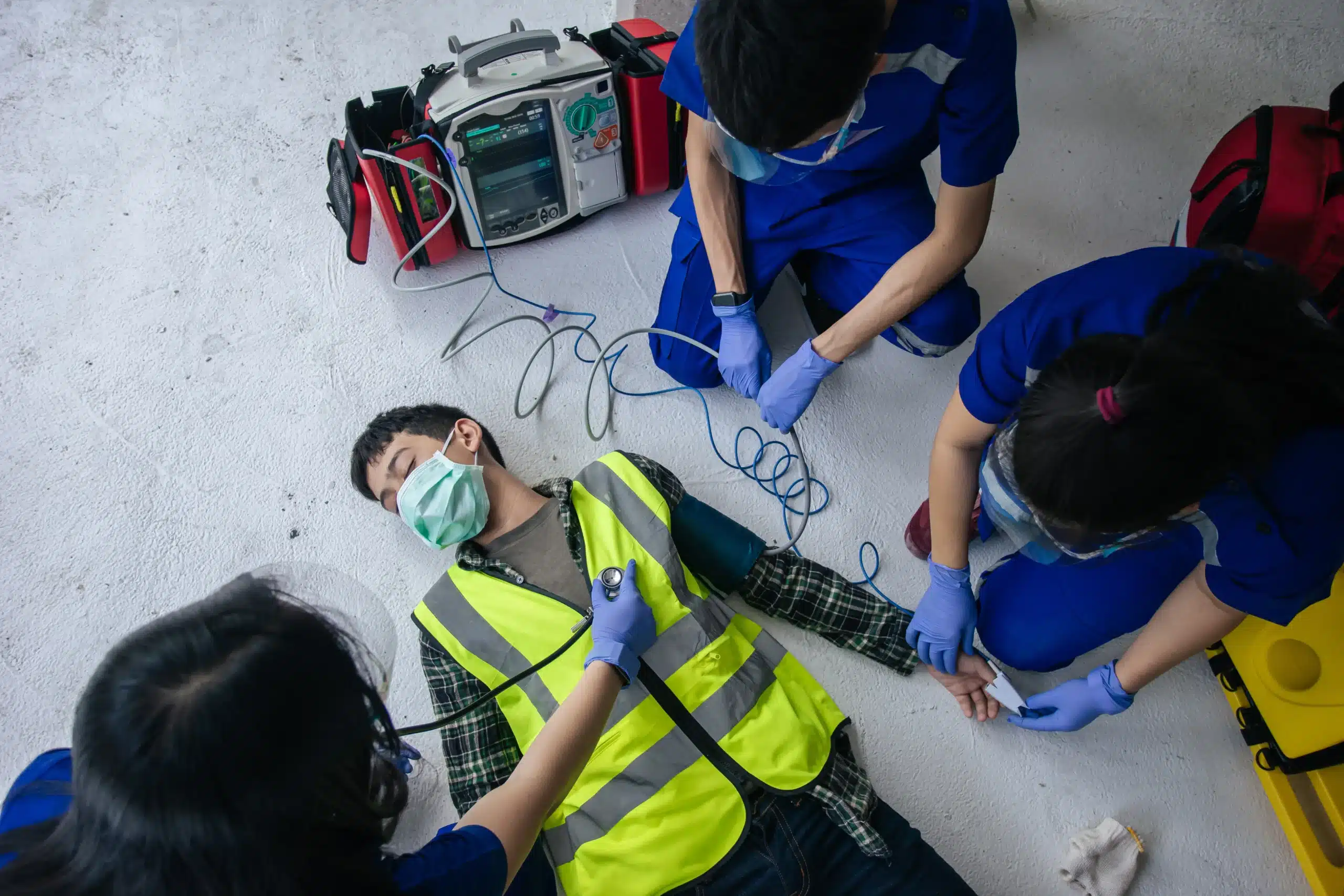Emergencies can happen anytime, anywhere. Being prepared isn’t about living in fear; it’s about having the confidence to act when it matters most. CPR classes in Morgan Hill empower you with the skills and knowledge to respond effectively in critical situations. This comprehensive guide will walk you through the various CPR class options available in Morgan Hill, including BLS, ACLS, PALS, and First Aid. We’ll also discuss the importance of AHA certification, the benefits of hands-on training, and how to choose the right class for your specific needs. Let’s equip you with the skills to make a difference.
Key Takeaways
- Choose the right CPR class: From basic CPR and first aid to advanced certifications like ACLS and PALS, find a course that aligns with your specific needs and career goals.
- Hands-on learning matters: In-person CPR training provides invaluable practical experience, personalized feedback from instructors, and the chance to ask questions in real-time.
- Be prepared to save a life: CPR and first aid skills empower you to respond effectively in emergencies. Research your options, select a quality provider, and invest in this essential training.
What are CPR Classes in Morgan Hill?
CPR classes in Morgan Hill equip you with the skills to handle emergencies. These classes teach life-saving techniques, including cardiopulmonary resuscitation (CPR) and often cover basic life support (BLS), advanced cardiovascular life support (ACLS), pediatric advanced life support (PALS), and standard first aid. Whether you’re a healthcare provider or simply want to be prepared, these courses offer invaluable knowledge.
Morgan Hill CPR classes are available daily, from 8 am to 10 pm. These American Heart Association (AHA) certified courses cover a range of skills, from the fundamentals of CPR to specialized training like ACLS and PALS. The comprehensive curriculum ensures you develop a thorough understanding of emergency response protocols. As a woman-owned business, Morgan Hill CPR Classes is committed to providing accessible and affordable training with a low-price guarantee, offering classes in over 60 cities. They proudly serve Morgan Hill, San Jose, and Gilroy, CA.
CPR Class Types
Knowing which CPR class is right for you depends on your background and goals. Here’s a breakdown of the different types of CPR classes offered by Morgan Hill CPR Classes:
Basic Life Support (BLS)
Basic Life Support (BLS) certification is a specific type of CPR training geared towards healthcare providers and those in medical settings. It focuses on the skills needed to recognize and treat life-threatening emergencies, including cardiac arrest and respiratory distress. This BLS training covers single-rescuer and team-based CPR, using an AED, and relieving choking. It emphasizes high-quality CPR and provides the knowledge needed to respond confidently in critical situations.
Advanced Cardiovascular Life Support (ACLS)
Advanced Cardiovascular Life Support (ACLS) is designed for healthcare professionals who direct or participate in the management of cardiopulmonary arrest or other cardiovascular emergencies. This course builds on the foundation of BLS and includes advanced interventions such as airway management, intravenous access, and pharmacology. ACLS certification demonstrates a higher level of proficiency in managing complex cardiovascular emergencies.
Pediatric Advanced Life Support (PALS)
Pediatric Advanced Life Support (PALS) focuses on the emergency treatment of infants and children. It is essential for healthcare providers who work in pediatric settings or regularly interact with children. This training covers recognizing and treating pediatric emergencies, including respiratory distress, shock, and cardiac arrest. PALS certification equips professionals with the specialized skills to provide effective care in these critical situations.
First Aid Courses
First Aid courses provide essential skills and knowledge to help individuals respond effectively to medical emergencies. These courses cover a range of topics, including wound care, bleeding control, splinting, burn management, and recognizing the signs of common medical conditions. While not strictly CPR, First Aid training complements CPR skills and empowers individuals to provide immediate care in various emergency situations. Consider pairing a First Aid course with your CPR training for a well-rounded approach to emergency preparedness.
CPR Training Costs & Value
Knowing the cost of CPR training is an important factor when choosing a class. Let’s break down pricing, discounts, and what to look for to get the best value.
Pricing
CPR class prices vary based on the type of certification you need. For example, a basic CPR course will typically be less expensive than an Advanced Cardiovascular Life Support (ACLS) certification. At Morgan Hill CPR Classes, we offer a range of American Heart Association certifications, including BLS, ACLS, PALS, CPR, and First Aid, and we’re committed to providing transparent and competitive pricing. Check our website for the most up-to-date pricing information for each course.
Discounts & Group Rates
If you’re training a group of people, such as colleagues or a community organization, ask about group discounts. Many training centers, including Morgan Hill CPR Classes, offer reduced rates for group bookings, making it more affordable to train multiple people at once. This can be a great way to equip your team with life-saving skills while saving money.
Low Price Guarantee
We understand that cost is a concern for many people seeking CPR training. That’s why Morgan Hill CPR Classes offers a low-price guarantee. We’re confident that our prices are competitive, and we’re committed to making this important training accessible to everyone. If you find a lower advertised price for the same course and certification level, we’ll match it. We believe everyone should have access to high-quality CPR training without financial strain.
Class Schedules & Flexibility
Finding the right CPR class shouldn’t feel like a scheduling puzzle. That’s why Morgan Hill CPR Classes prioritizes flexibility, offering a variety of class times to fit your busy life.
Daily Classes
We understand that finding time for essential training can be tough. To make it easier, we offer American Heart Association (AHA) BLS, ACLS, PALS, CPR, and First-aid certification courses seven days a week. This means you can find a class that works for you, whether you’re a busy professional, a student, or anyone in between. We’re committed to making these life-saving skills accessible to everyone in Morgan Hill, San Jose, and Gilroy.
Evening & Weekend Options
Beyond our daily classes, we also provide evening and weekend options. Our extended hours, from 8 am to 10 pm, accommodate various schedules, ensuring you can find a time that fits your needs. We know that weekdays can be packed, so we offer these extended hours to make training as convenient as possible. Plus, our low price guarantee in Santa Clara County means you’re getting the best value.
Private Group Sessions
Need training for your entire team or organization? We offer private group classes tailored to your specific requirements. This option allows employers to schedule training sessions that minimize disruption and ensure everyone receives consistent, high-quality instruction. Contact us to discuss your group’s needs and create a customized training plan.
Get Certified in CPR
Getting CPR certified is straightforward, but choosing the right course is essential. This section clarifies what to expect when pursuing your CPR certification in Morgan Hill.
Course Requirements & Prerequisites
Before signing up, check the specific requirements for your chosen certification level. General CPR and First Aid courses offered daily by Morgan Hill CPR Classes are designed for everyone, including childcare providers and those outside the medical field. Healthcare providers likely need a more advanced certification like Basic Life Support (BLS), Advanced Cardiovascular Life Support (ACLS), or Pediatric Advanced Life Support (PALS). Morgan Hill CPR Classes offers a range of American Heart Association certifications to meet these needs. You can find more information on their BLS and ACLS pages. For group training, explore their group discount options.
Skills Assessment
CPR certification involves demonstrating your skills through practical assessments. For healthcare professionals, the Resuscitation Quality Improvement (RQI) program uses simulation stations and real-time feedback to refine CPR techniques. This RQI training provides a valuable opportunity to practice and improve proficiency. Regardless of your chosen course, expect hands-on practice and evaluation to ensure you’re prepared for real-life emergencies. Review the course preparation page for more information.
Certification Validity & Renewal
CPR certifications have a limited validity period, typically one or two years. Renew your certification before it expires to maintain your skills and credentials. Basic CPR courses often require less time to complete than advanced certifications like BLS or ACLS. Check with your certifying body, such as the American Heart Association, for specific renewal requirements. Morgan Hill CPR Classes offers a low price guarantee, making it easier to stay current with your certification. Maintaining your CPR certification demonstrates your commitment to providing safe and effective care.
In-Person vs. Online CPR Training: Which is Right for You?
Choosing between in-person and online CPR training is a big decision. Both have their pros and cons, but the best choice depends on your learning style, schedule, and needs. Let’s explore the key differences to help you decide which path suits you.
Hands-On Practice
In-person CPR training excels when it comes to hands-on learning. Practicing compressions and rescue breaths on a manikin is invaluable. This physical practice builds muscle memory and confidence—essential for effective emergency responses. As KC First Aid explains, hands-on training provides a tactile experience that translates to better preparedness and quicker reactions in real-life situations. In a classroom, you can also practice with various manikin sizes, preparing you for diverse emergencies.
Instructor Feedback
Immediate feedback from a certified instructor is a major benefit of in-person training. They can correct your technique in real-time, ensuring you perform CPR correctly and efficiently. This personalized guidance is essential for developing proper form and avoiding mistakes. MyCPR NOW highlights instructor competence as crucial for quality CPR training. Having an expert to answer questions and offer advice significantly impacts your learning and skill development. This direct interaction also clarifies any doubts, solidifying your understanding.
Real-Time Q&A
In-person classes offer real-time question-and-answer sessions with your instructor. This interactive environment lets you explore specific topics, discuss real-life scenarios, and gain a comprehensive understanding of CPR principles. Asking questions as they arise creates a more engaging and personalized learning experience. Our RQI program uses simulation stations with real-time coaching and feedback, allowing participants to refine their skills in a supportive environment. This immediate clarification and personalized instruction builds confidence and competence in performing CPR.
What Happens in a CPR Class?
Curious about what your CPR training will involve? Here’s a preview of a typical CPR class, from the time commitment to the hands-on skills you’ll develop. At Morgan Hill CPR Classes, we foster a supportive learning environment to give you the confidence to respond effectively in emergencies.
Course Duration
CPR class duration depends on the specific course. A basic CPR course might take a few hours, while more comprehensive certifications, such as ACLS or PALS, usually require more time. Check our course schedules for details, but expect to dedicate a half-day to a full-day for most certification courses.
Provided Materials
We provide all the essential learning materials for our CPR classes. You’ll receive detailed manuals and access to resources developed by experts, aligning with workplace safety standards. Our approach blends clear instruction with hands-on practice to accommodate various learning styles. Visit our course prep page for more information about what to expect.
Practical Skills
Hands-on training is central to our CPR classes. We know that practical experience is key to mastering these life-saving skills. You’ll participate in simulated scenarios, practicing chest compressions, giving rescue breaths, and using an AED. For healthcare professionals seeking advanced training, our RQI program uses simulation stations with real-time feedback to ensure you’re fully prepared for real-life emergencies. This emphasis on hands-on learning builds confidence and competence, empowering you to act effectively in critical situations.
Prepare for Your CPR Class
Getting ready for your CPR class can make a big difference in how much you learn and how confident you feel. A little prep work goes a long way!
Pre-Course Study
Before your class, it’s helpful to familiarize yourself with the basics of CPR and first aid. Think of it as a preview! You can find helpful resources and information on our website about CPR certification. This pre-course study isn’t required, but it can really improve your understanding and help the information stick. Knowing what to expect can also ease any pre-class jitters.
What to Bring
CPR classes provide you with life-saving skills, so it’s important to come prepared to learn. Bring a notepad and pen to jot down important notes and reminders. Your instructor may also have specific materials for the course, so check your confirmation email or the course preparation page for any details.
Dress Code
While there isn’t a strict dress code, wear comfortable clothing that allows you to move freely. You’ll be participating in hands-on practice and demonstrations, so comfortable attire is key. You’ll want to be able to kneel on the floor comfortably and perform the physical actions required for CPR. For more details on what a class entails, visit our CPR class page.
Quality CPR Training
When your health or the health of a loved one is on the line, you want to know you have the skills to respond. That’s why choosing high-quality CPR training is so important. It’s not just about receiving a certification card; it’s about gaining the confidence and competence to act effectively in a real emergency. Here’s what sets quality CPR training apart:
AHA Certification Standards
The American Heart Association (AHA) sets the gold standard for CPR training. AHA certification ensures you learn the most up-to-date, evidence-based techniques. Morgan Hill CPR Classes offers a range of AHA certifications, including BLS, ACLS, PALS, CPR, and First Aid. These certifications are widely recognized and respected for their rigor and comprehensiveness. They signal to employers, healthcare providers, and anyone in need of assistance that you’ve received top-tier training. Choosing an AHA-certified course ensures you’re learning the most current and effective life-saving procedures.
Instructor Qualifications
Skilled instructors make all the difference in your learning experience. Our certified instructors have extensive experience and a deep understanding of AHA guidelines. They create a supportive learning environment where you can ask questions, practice your skills, and receive personalized feedback. This hands-on approach ensures you not only understand the concepts but can also apply them confidently in a real-world scenario. The right instructor can transform a potentially intimidating experience into an empowering one.
Continuous Improvement
Quality CPR training involves a commitment to ongoing improvement. We constantly evaluate our programs, incorporating the latest research and best practices. We believe in hands-on practice, regular skills assessments, and a focus on continuous feedback. This dedication to quality control means you can trust you’re receiving the best possible preparation for any emergency. We strive to provide our students with the most current and effective training available.
CPR Class Providers in Morgan Hill
Finding the right CPR class can feel overwhelming with so many options. To help you, we’ve compiled a list of CPR class providers in Morgan Hill, highlighting what each offers. This list includes providers offering certification through the American Heart Association (AHA) and the American Red Cross. Choosing the best provider depends on your specific needs and preferences.
Morgan Hill CPR Classes
Morgan Hill CPR Classes offers a full range of AHA certifications, including BLS, ACLS, PALS, CPR, and First Aid. As a woman-owned business, they emphasize a low-price guarantee and the convenience of daily classes in over 60 cities. They also offer discounts for group CPR training. For those looking for more information on what to expect, their website provides details on preparing for your course. Check their site for their low-price guarantee.
Safety Training Seminars
Located in the heart of Morgan Hill, Safety Training Seminars provides AHA-certified courses in BLS, ACLS, PALS, CPR, and First Aid. They focus on community safety and preparedness. You can find more information and reviews on Yelp.
American Red Cross
The American Red Cross offers a variety of First Aid training courses designed to equip individuals with the skills to respond to emergencies. They offer flexible learning with online, in-person, and blended formats. Explore their course options to find the best fit for your schedule and learning style.
St. Louise Regional Hospital
While St. Louise Regional Hospital may not offer CPR classes directly, many hospitals and medical centers in San Jose provide CPR certification courses, including BLS, to both healthcare professionals and the general public. Often, these courses focus on BLS certification, a specific type of CPR training geared towards healthcare providers and those in medical settings. For a comprehensive guide to CPR certification in San Jose, check out this helpful resource.
Related Articles
- CPR Classes in Gilroy: Find the Right One for You – Morgan Hill CPR Classes
- Basic Life Support in Gilroy: The Complete Guide – Morgan Hill CPR Classes
- ACLS Courses in Morgan Hill: Your Complete Guide – Morgan Hill CPR Classes
- PALS Certification in San Jose: The Complete Guide – Morgan Hill CPR Classes
- First Aid Classes San Jose: A Complete Guide – Morgan Hill CPR Classes
Frequently Asked Questions
What’s the difference between BLS and CPR? CPR is the core skill within both Basic Life Support (BLS) and general CPR courses. BLS certification goes further, adding essential skills for healthcare providers like AED use and team-based resuscitation. A general CPR course is suitable for anyone wanting to learn CPR, while BLS is specifically designed for healthcare professionals and those in medical settings.
How much do CPR classes cost in Morgan Hill? The cost depends on the type of class and certification. Basic CPR classes are generally less expensive than advanced certifications like ACLS or PALS. Morgan Hill CPR Classes offers competitive pricing and a low-price guarantee. Check their website for specific course costs. Discounts are often available for group bookings.
What if I have a busy schedule? How can I fit a CPR class in? Morgan Hill CPR Classes offers classes seven days a week, with evening and weekend options available. They understand that people have busy lives, so they aim to provide flexible scheduling to make training accessible. You can also arrange private group sessions for your workplace or organization.
How long is a CPR certification valid, and how do I renew it? CPR certifications are typically valid for one or two years. Check with the certifying organization (like the American Heart Association) for specific renewal requirements. Morgan Hill CPR Classes makes it easy to stay up-to-date with their convenient schedules and low-price guarantee.
What should I expect during a CPR class? Expect a combination of instruction, demonstrations, and hands-on practice. You’ll learn the essential skills of CPR, including chest compressions, rescue breaths, and how to use an AED. Morgan Hill CPR Classes provides all the necessary materials, and their instructors create a supportive learning environment. They also offer specialized training like the RQI program for healthcare professionals, which uses simulation and real-time feedback.
